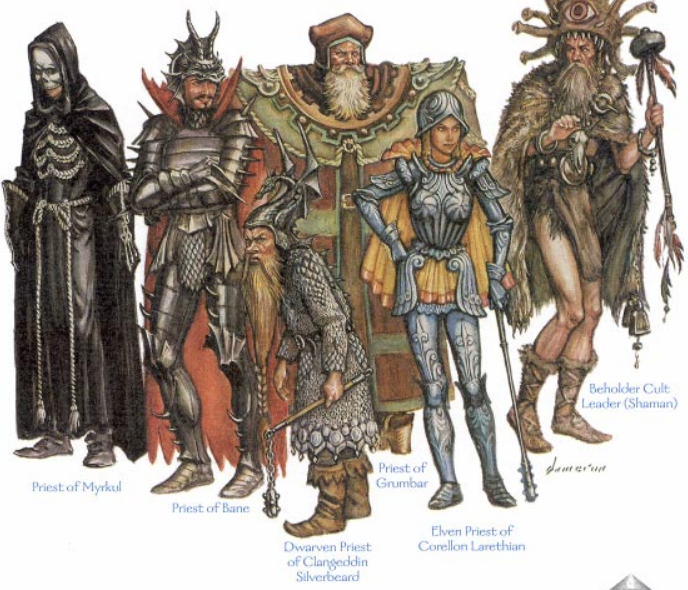Baldur's Gate 3 initially had an entire mechanic where you'd go to the fugue plane if you died, but it was scrapped
"We had this entire thing built out for it."
Death in Baldur's Gate 3 is final—if you're playing Honour Mode, that is. For everyone else, returning to the land of the living is but a revivify scroll away. This is a streamlining of D&D 5e (the system the game's built upon) and its resurrection mechanics—which typically require powerful magic that grows costlier and more advanced the longer the poor sod in question has been dead.
Originally, though, this process wasn't quite so simple. As Larian co-founder and CEO Sven Vincke told PC Gamer in a recent roundtable podcast, Baldur's Gate's development team once planned an entire mechanic that'd task players with escaping the fugue plane.
"Whenever you died, you were supposed to go to the fugue plane," Vincke explains. "[We] had this entire thing so that when you died, you were gonna go into the fugue plane … for instance, you would be in the fugue plane but the rest of your party would still be walking around in the material plane."
Vincke wasn't able to go into the details, especially since the studio would be within their rights to retool any systems they built for it for whatever's coming next, but that won't stop me from rolling up my sleeves and doing some speculation.
The fugue plane in Forgotten Realms lore is described as a neutral area within the Astral Sea—as AD&D Forgotten Realms book "Faiths and Avatars" puts it, it's "the place where spirits go right after people die." Gods will come and sort the faithful into their respective heavens. If you didn't sign on for any particular god you, uh, get formed into "a living wall around the City of Strife" and are "left there until [you] dissolve". Yikes.

It was also home to the City of Judgment (the City of Strife by another name) which plays host to gods of death—including Myrkul, who is a key figure in Baldur's Gate 3. Whether Larian would've even hypothetically have had room to go whole-hog with the concept, however, is another thing entirely. While Vincke says that the studio "had this entire thing built out for it", it clearly didn't make the cut.
While I personally think a mechanic like this could've been cool, it does sound like a pain in the keister to balance and fit into the game's pacing—especially since dying happens in combat. One of the cool things about Baldur's Gate 3 is that it allows players to have several different combats running in the same game if they'd like, since initiative order's imposed at a local level.
The biggest gaming news, reviews and hardware deals
Keep up to date with the most important stories and the best deals, as picked by the PC Gamer team.
This has the unintended consequence of allowing players to effectively "pause" a combat by never taking their turn, while their allies—not in the initiative order—run around the rest of the world unimpeded.
The scope of uses here is pretty limited, but it wouldn't take a rocket artificer to figure out that balancing a dead player's adventures on the fugue plane with the rest of their party's combat would be nigh-on impossible.The alternative is to just huck a grey filter over everything, but that's hardly paying due deference to the striking visuals of the source material.
You can find to the full podcast at the YouTube link above, use the Spotify embed below, or find it wherever else you get your podcasts.

Harvey's history with games started when he first begged his parents for a World of Warcraft subscription aged 12, though he's since been cursed with Final Fantasy 14-brain and a huge crush on G'raha Tia. He made his start as a freelancer, writing for websites like Techradar, The Escapist, Dicebreaker, The Gamer, Into the Spine—and of course, PC Gamer. He'll sink his teeth into anything that looks interesting, though he has a soft spot for RPGs, soulslikes, roguelikes, deckbuilders, MMOs, and weird indie titles. He also plays a shelf load of TTRPGs in his offline time. Don't ask him what his favourite system is, he has too many.

